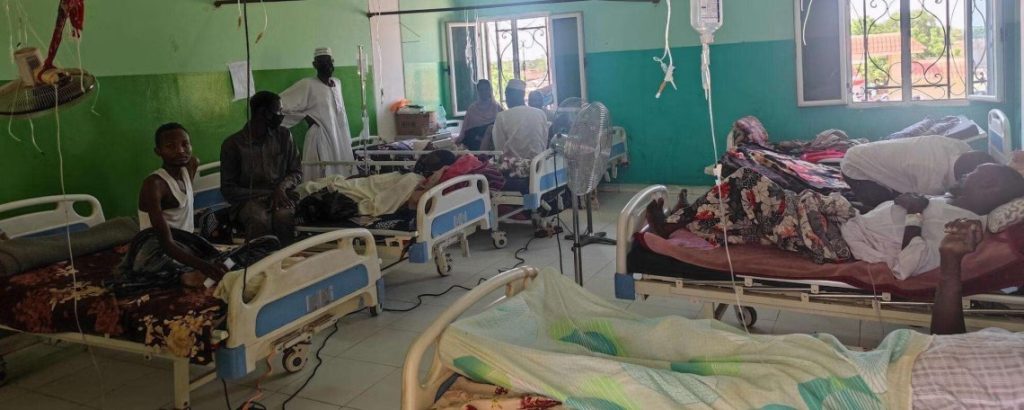Sudan is facing an escalating public health emergency as the cholera outbreak continues to spread, with more than 60,000 confirmed cases reported across the country, according to the Federal Emergency Operations Center.
In its latest update, the center revealed that 498 new cholera infections were recorded in the past week—most of them in Khartoum State—raising the cumulative total to 60,228 cases and 1,617 deaths. The outbreak now spans 88 localities in 12 states.
The report, presented during a regular meeting on April 29, also warned of a surge in other infectious diseases. Dengue fever cases rose by 127 to reach 11,893, with 20 fatalities reported. Measles infections climbed by 132 to a total of 1,092 cases across nine states, though no deaths were recorded. Hepatitis cases increased by 194, mainly in West Kassala, bringing the total to 819.
Environmental health inspections showed that out of 1,922 water sources assessed in five states, 78% were tested, with nearly 500 failing safety standards and undergoing corrective action. Food safety inspections achieved 79% coverage.
Access to essential medical supplies remains uneven. Nile River state had the highest availability at 75%, while South Kordofan had the lowest at just 25%. Some critical items, including IV fluids, were reportedly missing, although new humanitarian shipments have begun arriving.
Border monitoring reported 18,277 new arrivals and 9,512 departures during the week. Emergency clinics treated over 900 patients, and preparations are ongoing for the upcoming Hajj pilgrimage, including administration of international vaccines.
Reproductive health services are continuing through mobile clinics in displacement shelters in Kassala, while maternal and child health programs remain active in several states.
A nutrition assessment at a camp in Rabak, housing recently released detainees, found that 150 out of 154 individuals required rehabilitation for malnutrition. Cases of blindness and tuberculosis were also identified, with some signs of recovery following medical intervention.
Officials at the emergency meeting called for urgent action to contain the spread of cholera, particularly in Khartoum’s Karrari and Jebel Aulia areas, and raised concern over the emergence of diphtheria in other states.



